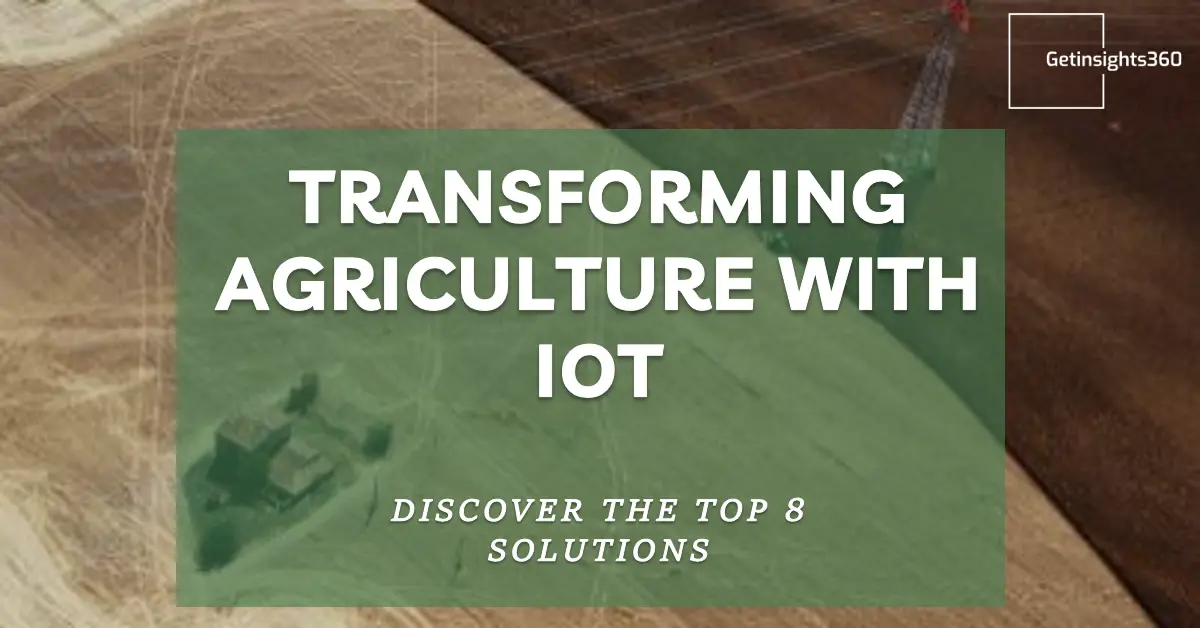Introduction
In the ever-evolving landscape of agriculture, technology is proving to be a game-changer. One of the key drivers of this transformation is the integration of IoT solutions. These innovative IoT solutions in agriculture are revolutionizing the way farmers cultivate, monitor, and optimize their fields. Join us on a journey through the transformative power of IoT solutions in shaping the fields of tomorrow.
What is smart farming in IoT?
Smart farming in IoT refers to using advanced technologies to make agriculture more efficient and productive. In simple terms, it’s like giving a brain to the farm. With the Internet of Things (IoT), farmers can use sensors, devices, and data analytics to monitor and manage their crops and livestock. Smart farming involves things like automated machinery, soil sensors, and even drones to collect information. This data helps farmers make smart decisions, like when to water crops or apply fertilizers, leading to better yields, reduced waste, and overall improved sustainability in agriculture. It’s like bringing high-tech solutions to the age-old practice of farming!
Let’s delve into the top six IoT solutions that are reshaping the future of agriculture.
1. Precision Farming with IoT
Imagine a farm where every square meter is optimized for maximum yield. IoT devices, ranging from soil sensors to GPS-guided tractors, are empowering farmers with precision farming techniques. These IoT solutions in agriculture allow farmers to make data-driven decisions, ensuring efficient use of resources and improved crop yields..
Sunburn Farms in California uses drones equipped with multispectral cameras to map their vineyards. The data reveals precise variations in grape health, allowing them to target irrigation and fertilizer to each vine, saving water and boosting yields by 20%.
2. Smart Irrigation Systems
Water scarcity is a significant concern in agriculture. With IoT solutions, smart irrigation systems are becoming a beacon of hope. These IoT devices monitor soil moisture levels in real-time, enabling farmers to deliver the right amount of water precisely when and where it’s needed. The result? Reduced water wastage and healthier crops.
Kenyan farmers use FarmIT app to sync weather data and soil moisture readings, cutting water use by 40% while increasing yields.
3. Crop Monitoring and Management
IoT-enabled devices are providing farmers with a bird’s eye view of their fields. Drones equipped with cameras and sensors allow for comprehensive crop monitoring. Farmers can identify potential issues such as pest infestations or nutrient deficiencies early on, facilitating proactive management and minimizing crop loss.
An Australian farm uses drones equipped with multispectral cameras to map fields daily, identifying stressed crops early for targeted pest control and boosting yields by 20%.
4. Livestock Monitoring Solutions
The benefits of IoT in business extend beyond crops to livestock management. IoT solutions enable farmers to monitor the health and behavior of their animals in real-time. Wearable devices for animals, coupled with data analytics, help farmers detect signs of illness, optimize feeding schedules, and enhance overall herd management.
Irish dairy farmers use smart collars equipped with temperature sensors on their cows. These collars send real-time alerts to farmers’ phones when a cow’s temperature spikes, indicating potential illness.
5. Supply Chain Optimization
IoT solutions are not limited to the fields; they extend to the entire agricultural supply chain. From tracking the temperature of perishable goods during transportation to monitoring inventory levels, these IoT solutions bring transparency and efficiency to the supply chain. This results in reduced waste and improved overall productivity.
Smart labels on avocados alert distributors of ripening, preventing grocery store spoilage and lost profits.
6. Weather Forecasting and Risk Management
Farmers are at the mercy of weather conditions, and unpredictability can lead to significant losses. IoT solutions offer advanced weather forecasting tools, helping farmers plan their activities based on accurate predictions. Additionally, these tools aid in risk management by providing insights into potential weather-related challenges, allowing farmers to take preventive measures.
Grape farmer in Napa uses real-time wind sensors to trigger frost protection before sudden cold snap, saving entire harvest.
7. Automated Machinery and Robotics
The agriculture industry is embracing automation through IoT solutions, introducing smart machinery and robotics into daily operations. IoT-enabled tractors and harvesters equipped with sensors and AI technology can perform tasks with precision. This not only reduces the manual labor required but also enhances the overall efficiency of farming operations. Farmers can remotely monitor and control these machines, optimizing their usage based on real-time data.
In California’s Central Valley, a farmer uses an AI-powered tractor to autonomously navigate his vast almond orchard, precisely applying water and fertilizer only where needed, saving 30% on water and boosting crop yields by 15%.
8. Blockchain for Transparent Traceability
In the era of conscious consumerism, transparency in the food supply chain is paramount. Blockchain, coupled with IoT devices, is transforming how we trace the journey of agricultural products from farm to table. Each step of the production process, from planting to harvesting and distribution, is recorded in an unalterable blockchain. This not only ensures the authenticity of the products but also provides consumers with a clear picture of the product’s origin, fostering trust and accountability in the agricultural ecosystem.
Supermarket giant Carrefour uses blockchain to trace salmon, exposing ethical fishing practices and reducing seafood fraud.
Conclusion
In conclusion, the integration of IoT solutions in agriculture is ushering in a new era of efficiency, productivity, and sustainability. These IoT solutions, from precision farming to supply chain optimization, empower farmers to make informed decisions, reduce environmental impact, and ensure food security. As we witness the continuous evolution of IoT devices in agriculture, the benefits of IoT in business practices within the industry become increasingly evident, promising a brighter and more sustainable future for farming.
